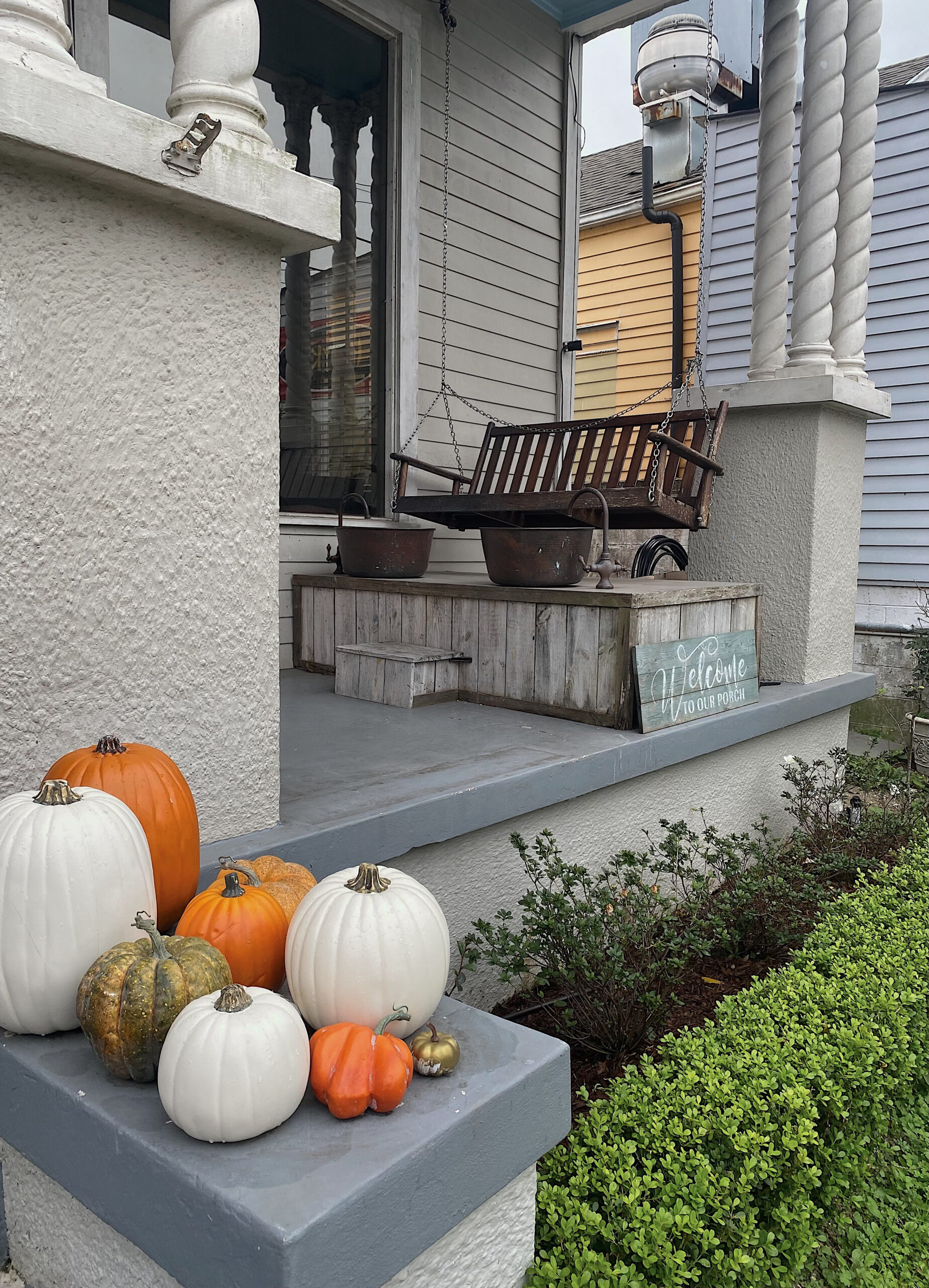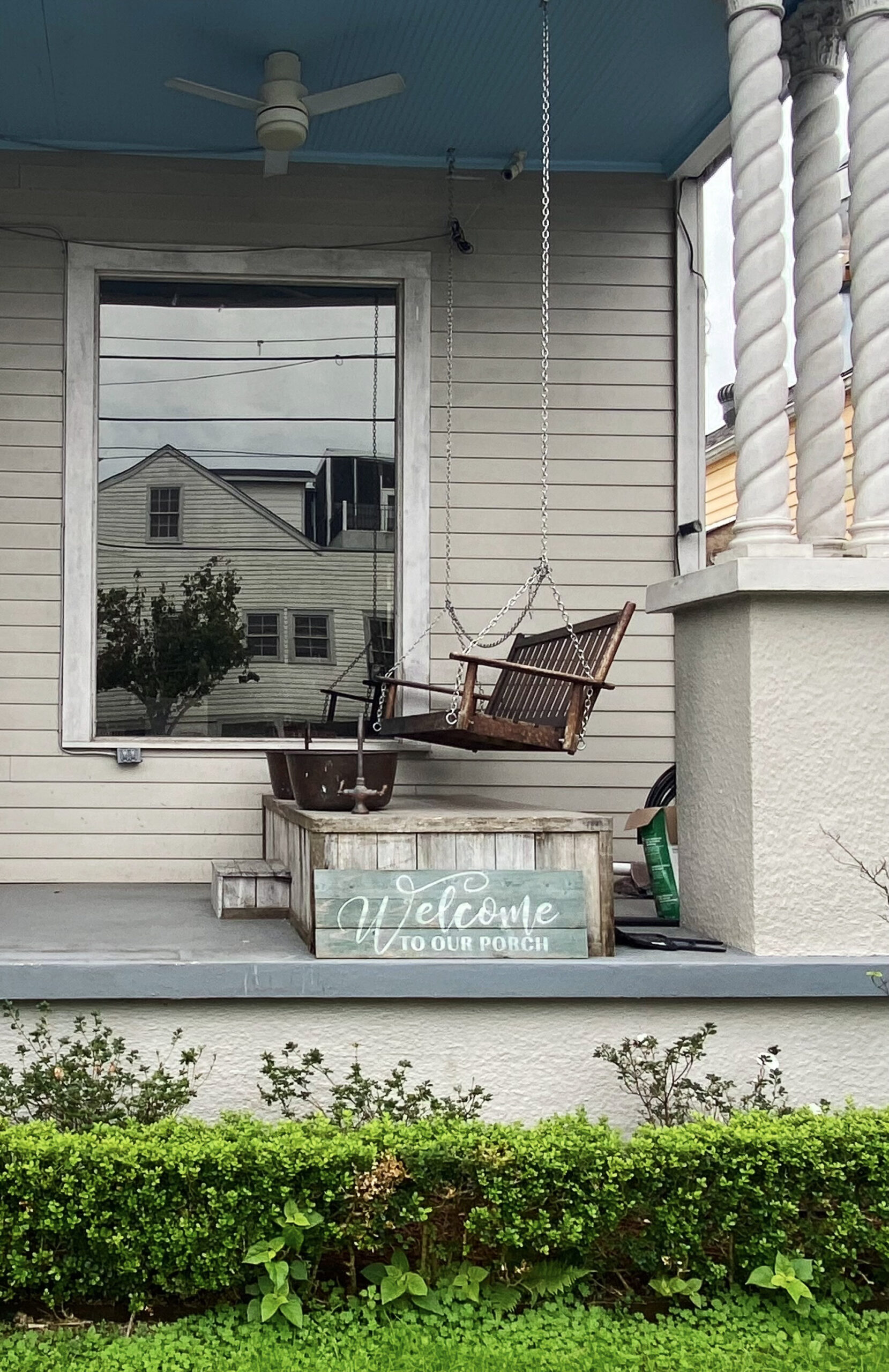/pɔːrtʃ/ (n.) From Latin ‘porta’ meaning “city gate, gate, door, or entrance.” From the Proto-Indo-European root ‘per-‘ meaning “to lead, pass over.”
Looking up Proto-Indo-European root words is like watching spores travel and grow in the soil of different languages. Here are just a few for Porch, as listed on etymonline: Sanskrit: ‘parayati’ meaning “carries over.” Greek: ‘porous’ meaning “journey, passage, way.” Old Church Slavonic: ‘pariti’ meaning “to fly.” Avestan (Old Iranian): ‘peretush’ meaning “passage, ford, bridge.”
If you are welcome to sit on a porch, you are welcome to enter. It’s a place where you pass over into pause. Time passes but not really. Not while you’re sitting on this bridge between you and others sharing the porch with you. Not when you cross the entryway between the outside and inside. You talk, chat, catch up, chew the fat, daydream, fly together in each other’s worlds.
I remember before I moved to New Orleans, someone made a snide remark about being bored. “What are you gonna do, sit on the porch all day?” Well… yeah. Why not?
What they didn’t know is my love of porches and their mysterious power to collect and hold stories. We had a porch on our house growing up, and I remember it as a place where a lot of life happened. We’d convene, play, shuck fresh corn on the cob, barbecue, laugh, cry, play music, welcome or wave goodbye, or just sit and talk.
Maybe that memory is what endears me to the porches I see here. While living in New York I had the same admiration for stoops, which served the same purpose. Whether attentively decorated or plain, love is there.
It doesn’t stop at the physical attachment on a building. There is a welcoming in the smile or wave from someone sitting on a porch. The one in this photo, though empty of human presence, is itself an invitation. As a lone passerby, you are welcome to join someone else’s journey.

